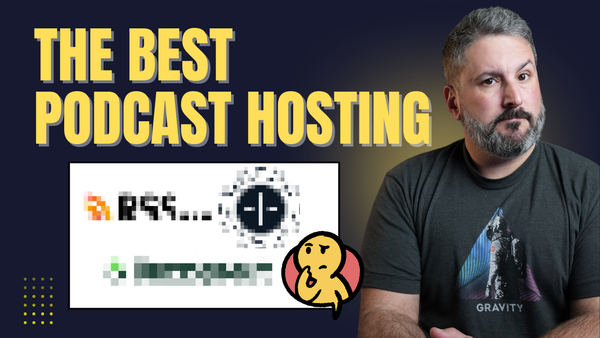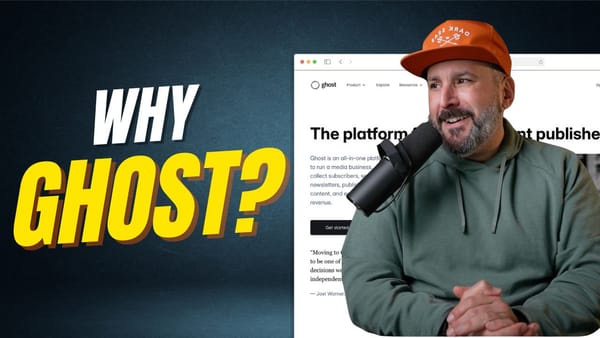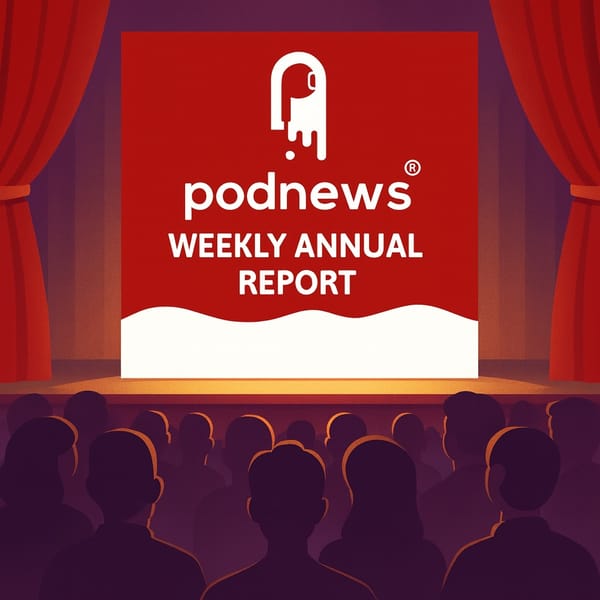When Big Money Breaks Audio

Last week, 110 people lost their jobs at Wondery as Amazon restructured the podcast company it acquired for a reported $300 million just three years ago. The layoffs, which primarily hit the narrative podcast division, came with a familiar corporate euphemism: "strategic reorganization." For those in the audio industry watching from the sidelines, it felt like déjà vu. Another casualty of what happens when venture capital logic infiltrates creative media.
The parallels between podcasting's current crisis and the startup world's boom-bust cycles aren't coincidental. They're structural. Just as venture capital creates "zombie startups" that burn through funding rounds without ever reaching profitability, the podcast industry has created zombie productions: massively funded shows with Hollywood-sized teams that were never designed to make money, only to justify continued investment.
The Inflation Problem
When COVID hit, big entertainment companies saw podcasting as the next frontier. Netflix, Amazon, Spotify, and others poured hundreds of millions into the space, creating what industry insiders call the "podcast industrial complex." Like VCs chasing the next unicorn, these companies threw money at celebrity talent deals and sprawling production teams, assuming scale would translate to profitability.
Just like startups that raise endless funding rounds while burning cash, podcast companies kept expanding overhead without building sustainable business models. Wondery's mandate to reach profitability by year-end (the ultimatum that led to layoffs) mirrors the reckoning overfunded startups face when investors finally demand returns.
The problem isn't that podcasting can't be profitable. It's that the industry adopted entertainment production models requiring massive teams to justify their existence within corporate structures. But does any podcast really need writers, researchers, fact-checkers, multiple producers, sound designers, marketers, and executives? That's building a television production team for an audio medium that might flourish with a fraction of the overhead.
Chasing the Wrong Solutions
Faced with audio-first economics failing at Hollywood scale, the industry's response has been predictably myopic: pivot to video. Spotify boasts that video podcast consumption has grown "20 times faster than audio-only consumption," while YouTube's billion monthly podcast viewers have become the industry's north star.
This pivot reveals the fundamental misunderstanding driving the industry's problems. Video isn't solving profitability issues. It's creating platform lock-in that benefits YouTube and Spotify while constraining creators. Unlike open RSS feeds that allow podcasts to exist anywhere, video platforms trap content within their ecosystems.
The rush to video feels like an admission that the industry couldn't make big-team audio work, so they're chasing the next shiny object rather than questioning whether their approach was fundamentally flawed.
The Road Not Taken
What if the problem isn't that audio can't be profitable, but that podcasting doesn't need the production infrastructure big media assumed it required? While Wondery laid off 110 people, countless independent podcasters continue building sustainable audiences with teams of one to three people.
Consider what audio actually demands versus what the industry built around it. Does a compelling interview show need multiple producers, or one exceptionally skilled host who can conduct great conversations and understand their audience? Does an investigative series require a newsroom-sized team, or a smaller group of experienced journalists who can wear multiple hats? The medium's intimacy might actually suffer under committee-driven production.
Audio's strength has always been its intimacy and efficiency. The best podcasts create deep connections between hosts and audiences without requiring massive production budgets. Instead of hiring bigger teams to justify bigger budgets, perhaps the medium called for smaller, more talented teams where each person could command higher compensation while maintaining creative control and sustainable economics.
The Reckoning
The human cost of the Wondery restructuring cannot be overlooked. 110 talented professionals lost their jobs, many passionate about audio storytelling and dedicated to the medium's potential.
Yet there's opportunity hidden in this industry upheaval. The word "podcasting" has never been more culturally relevant, even as big media pivots toward video. This mainstream awareness represents untapped potential for the open podcasting ecosystem that operates outside platform silos.
The rush to video represents yet another massive investment in locked-in platforms with uncertain returns. Companies are doubling down on the same venture capital logic that created the current sustainability crisis, just with cameras added.
What the industry spent years chasing was a mirage of television-scale success instead of building on audio's inherent strengths. In trying to make podcasting into something it wasn't, we may have temporarily forgotten what it could be.
For podcast professionals, the path forward is clearer than industry headlines suggest. While big media retreats from audio-first content, the cultural cachet of "podcasting" has never been stronger. This creates a unique opportunity to double down on what made the medium revolutionary: open distribution, direct creator-audience relationships, and creative freedom that comes from not being beholden to platform algorithms. Now is the time to lean into open podcasting and prove that focused, passionate creators can build lasting businesses while platforms chase their next big bet.
Running a podcast business is tough. Publishing your site and newsletter shouldn’t be. Ghost makes it simple. Get your podcast website & newsletter live on Ghost today.




